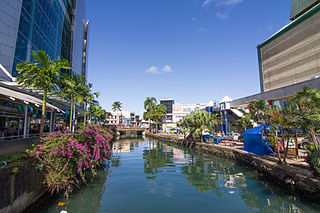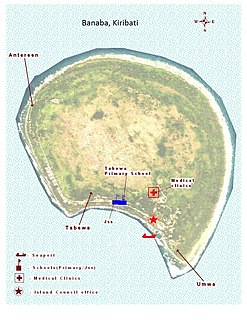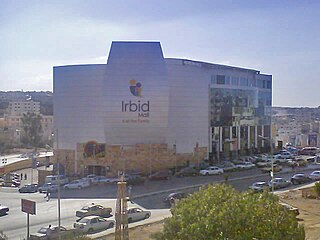
Kiribati, officially the Republic of Kiribati, is an independent island nation in the central Pacific Ocean. The permanent population is just over 110,000 (2015), more than half of whom live on Tarawa atoll. The state comprises 32 atolls and one raised coral island, Banaba. They have a total land area of 811 square kilometres and are dispersed over 3.5 million km2 (1.4 million sq mi).

The economy of Fiji is one of the most developed among the Pacific islands. Nevertheless, Fiji is a developing country endowed with forest, mineral and fish resources. The country has a large subsistence agriculture sector, which accounts for 18% of gross domestic product, although it employed some 70% of the workforce as of 2001. Sugar exports and the growing tourist industry are the major sources of foreign exchange. Sugar cane processing makes up one-third of industrial activity. Coconuts, ginger, and copra are also significant.

The Pacific Islands Forum (PIF) is an inter-governmental organization that aims to enhance cooperation between countries and territories of the Pacific Ocean, including formation of a trade bloc and regional peacekeeping operations. It was founded in 1971 as the South Pacific Forum (SPF), and changed its name in 1999 to "Pacific Islands Forum", so as to be more inclusive of the Forum's Oceania-spanning membership of both north and south Pacific island countries, including Australia. It is a United Nations General Assembly observer.

Banaba is an island of Kiribati in the Pacific Ocean. A solitary raised coral island west of the Gilbert Island chain, it is the westernmost point of Kiribati, lying 185 miles (298 km) east of Nauru, which it is also the nearest neighbor to. It has an area of 6.0 km2, and the highest point on the island is also the highest point in Kiribati, at 81 metres (266 ft) high. Along with Nauru and Makatea, it is one of the important elevated phosphate-rich islands of the Pacific.

Non-tariff barriers to trade are trade barriers that restrict imports or exports of goods or services through mechanisms other than the simple imposition of tariffs.

The Australia – United States Free Trade Agreement (AUSFTA) is a preferential trade agreement between Australia and the United States modelled on the North American Free Trade Agreement (NAFTA). The AUSFTA was signed on 18 May 2004 and officially came into effect on 1 January 2005.
The Caribbean-Canada Trade Agreement known as ("CARIBCAN") is a Canadian government programme, established in 1986 by the Parliament of Canada. The agreement was created to promote trade, investment and provide industrial cooperation through the preferential access of duty-free goods from the countries of the Commonwealth-Caribbean to the Canadian market.

In international trade, market access is a company's ability to enter a foreign market by selling its goods and services in another country. Market access is not the same as free trade, because market access is normally subject to conditions or requirements, whereas under ideal free trade conditions goods and services can circulate across borders without any barriers to trade. Expanding market access is therefore often a more achievable goal of trade negotiations than achieving free trade.

The Pacific Union is a proposed development of the Pacific Islands Forum, suggested in 2003 by a committee of the Australian Senate, into a political and economic intergovernmental community. The union, if formed, would have a common charter, institutions and currency. Although former Prime Minister of Australia John Howard spoke of a Pacific Union whilst in office, his government's emphasis was focused on bilateral relations and agreements with the individual states of the Forum.
Economic Partnership Agreements are a scheme to create a free trade area (FTA) between the European Union and the African, Caribbean and Pacific Group of States (ACP). They are a response to continuing criticism that the non-reciprocal and discriminating preferential trade agreements offered by the EU are incompatible with WTO rules. The EPAs date back to the signing of the Cotonou Agreement. The EPAs with the different regions are at different states of play. In 2016, EPAs with three African Regional Economic Communities were to be signed but faced challenges.

The Melanesian Spearhead Group (MSG) is an intergovernmental organization, composed of the four Melanesian states of Fiji, Papua New Guinea, Solomon Islands and Vanuatu, and the Kanak and Socialist National Liberation Front of New Caledonia. In June 2015, Indonesia was recognized as an associate member.

Rules of origin are the rules to attribute a country of origin to a product in order to determine its "economic nationality". The need to establish rules of origin stems from the fact that the implementation of trade policy measures, such as tariffs, quotas, trade remedies, in various cases, depends on the country of origin of the product at hand.

The Commerce Commission is a New Zealand government agency charged with enforcing legislation that promotes competition in the country's markets and prohibits misleading and deceptive conduct by traders. It is an independent, quasi-judicial body, established under the Commerce Act 1986. The purpose of the Act is to promote competition in New Zealand's economy. It prohibits conducts that restricts competition and the purchase of a business's shares or assets if that purchase leads to a substantial lessening of competition in the market.
The Pacific Agreement on Closer Economic Relations (PACER) is an umbrella agreement between members of the Pacific Islands Forum which provides a framework for the future development of trade cooperation.

Oceania is, to the People's Republic of China and the Republic of China, a stage for continuous diplomatic competition. The PRC dictates that no state can have diplomatic relations with both the PRC and the ROC. As of 2019, ten states in Oceania have diplomatic relations with the PRC, and four have diplomatic relations with the ROC. These numbers fluctuate as Pacific Island nations re-evaluate their foreign policies, and occasionally shift diplomatic recognition between Beijing and Taipei. The issue of which "Chinese" government to recognize has become a central theme in the elections of numerous Pacific Island nations, and has led to several votes of no-confidence.

Qualifying Industrial Zones (QIZ) are industrial parks that house manufacturing operations in Jordan and Egypt. The QIZ program was introduced in 1996 by the U.S. Congress to stimulate regional economic cooperation. Goods produced in QIZ-designated areas in Egypt, Jordan and the Palestinian territories can directly access U.S. markets without tariff or quota restrictions, subject to certain conditions. To qualify, goods produced in these zones must contain a small portion of Israeli input. In addition, a minimum 35% value to the goods must be added to the finished product. The idea was first proposed by Jordanian businessman Omar Salah in 1994.
The Comprehensive Economic Partnership for East Asia (CEPEA) is a Japanese led proposal for trade co-operation, free trade agreement, among the 16 present member countries of the East Asia Summit. All those movements and efforts were taken over by the following Regional Comprehensive Economic Partnership.
PACER Plus is a free trade agreement between members of the Pacific Islands Forum. The agreement expands the existing Pacific Agreement on Closer Economic Relations (PACER) to include further trade liberalisation and development assistance. It entered into force on 13 December 2020.
Australian governments, both those of the colonies after the introduction of responsible government in the 1850s and the national government since federation in 1901, have had the power to fix and change tariff rates. This power resides in the respective legislatures, with tariffs, being a tax law, is required to originate in the lower house of the legislature.

Kiribati–Spain relations are the bilateral and diplomatic relations between these two countries. The embassy of Spain in Wellington, New Zealand, is accredited for Kiribati.













